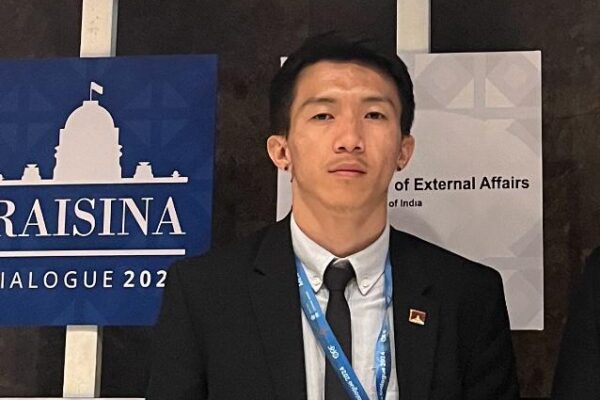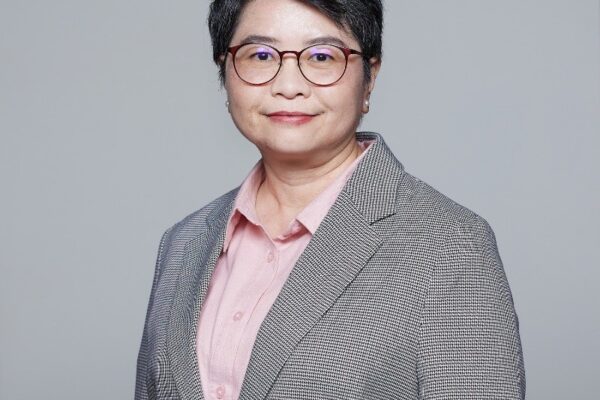
Interview with Rinzin Namgyal on Life, Tibet and the Dalai Lama
LIFE IN INDIA Can you share your/family’s journey of moving to India and how it has influenced your professional and personal life? I am Rinzin Namgyal, born and raised in the Phuntsokling Tibetan refugee settlement in Odisha. Our settlement comprises five camps, and both our professional and private lives are significantly influenced by societal factors rather than merely family factors, as we live in a Tibetan-concentrated refugee settlement. However, in my case, my family has played a crucial role. My grandparents fled Tibet and entered Indian territory through Bomdila (Arunachal Pradesh border), working as road construction workers in the Kullu-Manali region. Like many early Tibetan refugees, they toiled in such jobs for their livelihood. This instilled in me a profound understanding of the hardships they endured, as the Tibetan community started from the ashes. Their resilience remains a source of pride and inspiration for me. Additionally, my father served in the Indian Army’s Special Frontier Force, a Tibetan guerrilla force established to counter the Chinese in the high Himalayan mountains. His dedication to Tibet, despite residing in India and dreaming of returning one day, has been a tremendous catalyst for me. It inspired me to pursue studies related to China, driven by a desire to contribute to my own identity and honour His Holiness the Great 14th Dalai Lama, who is the sole leader responsible of what we are today. How has your experience living in India shaped your views on Tibet and its geopolitical significance? For many Tibetans entering Indian universities, identity issues often arise due to the differences from native Indian students. My perspective on Tibet has recently evolved, prompting questions such as: What if His Holiness the 14th Dalai Lama were not with us tomorrow? What if the Indian government revoked our refugee status? Where would we go? Is the current Central Tibetan Administration truly self-reliant? These questions instill a sense of urgency for having our own land. For many Tibetan students, the geopolitical significance of Tibet has recently shifted. Chinese aggression at the Indian border, environmental crises, and the consequences of irresponsible Chinese development across the Tibetan plateau—known as the world’s third pole—highlight Tibet’s strategic importance. This has helped forge an understanding of Tibet’s geopolitical significance, positioned at the centre of South and Central Asia, serving as a vital bridge. EDUCTION What motivated you to pursue an MA in East Asian Studies at Delhi University? Since childhood, I have felt a strong sense of duty to repay what His Holiness the 14th Dalai Lama has given us. Privately, I have always had a keen interest in History, Politics, and International Relations. Consequently, I pursued a Bachelor’s degree in History, delving into Chinese history. As I progressed to my Master’s, I realised that this course (M.A EAST ASIAN STUDIES) would most appropriately serve my identity, interests, and aspirations. I also plan to pursue a PhD in China Studies in the near future. How has your education helped you in your current roles at All India Radio and the Foundation for Non-violent Alternatives? As a research intern at the Foundation of Non-Violent Alternatives, a public policy organisation focused on the objective study of Tibet, Tibetan affairs, and their security implications for India, I find my work both convenient and motivating. I cover topics related to Tibet, China, and Xinjiang, including recent developments in these areas since this area is also my Master’s level study. FNVA provides an excellent environment for learning and growth, with colleagues who have extensive experience and insight into these fields. Moreover, I work as a Tibetan translator and announcer for All India Radio, which kept me informed about daily developments in Tibet. Overall, my work and education align perfectly, allowing me to broaden my understanding, deepen my knowledge, and continually improve. Tibet What are your thoughts on the current situation in Tibet, especially in light of recent developments vis a vis China-Philippines tussle in South China Sea, Taiwan issue and India-China standoffs? The question itself implies an answer. The issues mentioned are recent developments that have come into the spotlight, yet the situation in Tibet stands in stark contrast. Since the Chinese occupation of Tibet in 1959, Tibet has faced a serious existential threat and is on the brink of a complete genocide of Tibetan identity through Beijing’s programmes, such as colonial boarding schools, aimed at assimilating Tibetan younger generations into mainstream Han culture. However, the China-Philippines tussle, the Taiwan issue, and the India-China standoffs provide a perfect example of what Tibetans have been warning about for the past seven decades: do not feed the dragon (China) through trade. China’s plan is one of expansionism and establishing a Beijing rule-based international order. The situation in Tibet is fundamentally a civilisational, sovereignty, and human dignity issue, rather than merely a human rights issue. Given these standoffs with major Asian economies, it seems unlikely that the situation in Tibet will improve in the foreseeable future, as it clearly indicates Beijing’s prioritisation of national security and expansionism. How do you see the role of international advocacy groups and policies, such as the US Resolve Tibet Act, in shaping the future of Tibet? This is an intriguing question, as the current 16th Kashag Sikyong (President) Penpa Tsering of the Central Tibetan Administration places significant emphasis on raising awareness and forming advocacy groups. As a member of Delhi V-TAG (Volunteer Tibet Advocacy Group), we strive to raise awareness about the challenging situation in Tibet. Recently, we hosted our second International Tibet Youth Forum, aimed at educating V-TAG members worldwide on effective campaigning, lobbying, and global awareness strategies. I view such advocacy groups as the genesis of the Tibetan freedom movement, given that they consist largely of educated young people exposed to diverse cultures. Historically, such advocacy groups have played a tremendous role in enacting legislation like the Tibet Policy and Support Act 2020 and the US Resolve Tibet Act 2024 in the United States through relentless lobbying with Congressmen. However, in Europe and India, while we continue our…





